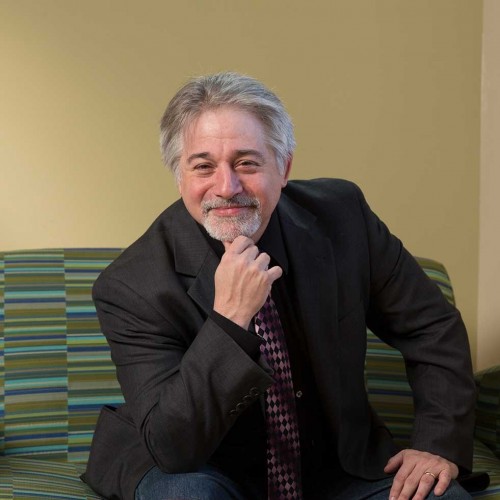From Movies to Microorganisms, SURE Gives Students Valuable Research Experience
One-on-one research with professors gives undergraduates valuable experience and a competitive edge no matter what their major.
Joe D’Amore ’16 gets up a 4 a.m. and pads quietly to the kitchen so as to not wake the other five student researchers sharing Pocasset House here on campus this summer. The English major and avid amateur pianist makes tea, eats a banana and takes advantage of the silence to do some creative writing. And just as the sun is rising, he’s diving into another day at his summer job – doing research on Theodor Adorno, a German sociologist, philosopher and composer.
Other students might wince at the idea of rising before dawn, but D’Amore – a self-described morning person – views his schedule and his research opportunity the same way: “Pretty awesome and enviable.”
Since 1996, hundreds of Stonehill students have been spending summers on campus for the Stonehill Undergraduate Research Experience (SURE), performing significant, publishable research full time in collaboration with a faculty member. Ask almost anyone who has done it and they’ll tell you the experience, available in all disciplines, helped them define and solidify their goals, both in terms of graduate school and careers.
A Partnership With Benefits for Students and Professors
D’Amore, who lives on campus and is paid a stipend during his 10 weeks of research, works in partnership with English Professor Matthew Borushko, who is studying Adorno for a book he is writing on the British poet Percy Bysshe Shelley.
“I’m looking at what Adorno had to say about art and music; Professor Borushko is more interested in what he had to say about literature,” D’Amore says. In addition to focusing on different facets, the two will use their research in different ways. At the summer’s end, D’Amore plans to submit a paper for consideration at the 2015 National Collegiate Research Conference at Harvard University, while Borushko will use it to compose portions of his book project.
D’Amore is just one of about 50 students on campus loving the life of scholarly research this summer. Laura Patriarca ’16 and Jasmin Volpe ’15 are conducting experiments in the lab of Professor Justin Dore. There, Patriarca, a neuroscience major, and Volpe, a biology major, are studying signals sent out by cells that potentially prevent or positively impact the healing process for patients with spinal cord injuries.
“I’m learning so many different techniques in the lab,” says Volpe. “I wanted to do SURE to find out if I wanted to do research [as a career]. And I’ve discovered I do.” For Volpe, that will mean graduate school, either straightaway after graduation or after working for a few years.
It’s really exciting because something Matt is doing for Brockton has the potential to influence public policy not only in the city, but statewide and perhaps even nationally.
A Chance to Explore Topics of Special Interest
History major Sean Davenport ’15 has yet to decide if graduate school or research will be part of his future. But he knew he couldn’t pass up an opportunity to delve deeper into one of his favorite topics. A film buff, he is working with history Professor David Sander on Cinema, Islamic Reform and Popular Imagination in the Muslim World.
“I was excited when Sean approached me about doing this,” Sander says. “Eventually, I could see this developing into a course or even a book.”
The pair is focused on five major themes that they developed together: authority, women, violence, spirituality and realism. Already Sean has watched movies from Mali, Tunisia, Egypt, Bangladesh and Iran, which produces the most movies by far in the region. “My ultimate goal is to watch 40 films this summer,” he says. “Between that and background reading, I’m trying to understand more about Islam today and reform movements in Muslim societies.”
For Matt Attaya ’15, a psychology major, research centers on an issue much closer to home. Working with the Brockton Public Schools, he is investigating what he calls “over-representative suspension rates in inner-city schools.” “In 2013, at Brockton High School, 80 percent of the students suspended were Latino, Hispanic or African American,” he explains. And Brockton is by no means alone: This phenomenon is replicated in cities across the United States. “I’m looking at alternative processes and finding there are a lot of different ways to approach the issue.” At the Brockton School Department’s request, Attaya will present his findings to officials there this fall.
“It’s really exciting because something Matt is doing for Brockton has the potential to influence public policy not only in the city, but statewide and perhaps even nationally,” says Professor Corey Dolgon, Attaya’s SURE advisor and director of the College’s Center for Community Based Learning. “SURE lets students experience research in the way it really happens. Nine times out of 10, your research doesn’t end up where you thought it would. Failure is part of the process, sometimes an important part of the process.”
In SURE, Dore sees a marked difference from the research universities where he has worked. “At Stonehill, research is centered on the experience of the students. Through SURE and the work Laura and Jasmin are doing this summer, I’m advancing my own research interests at the same time they’re learning.”
Sander echoes that sentiment. “SURE is a not-to-be-missed opportunity. It’s a way for students to take their passions and interests and turn them into projects that have a reach far beyond campus.”
